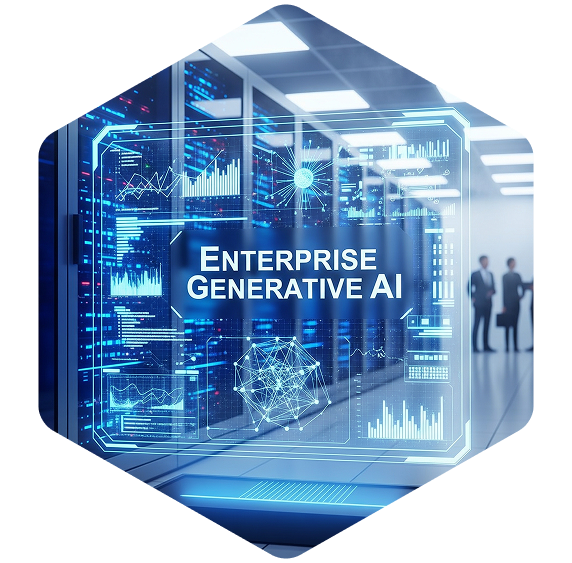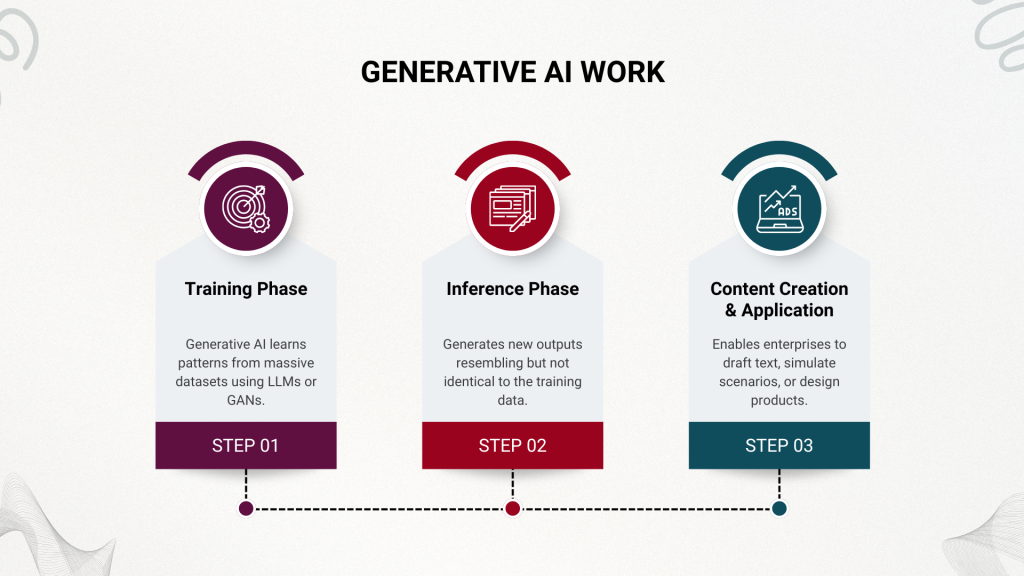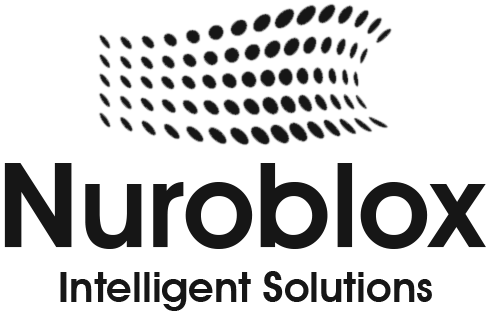Enterprise Generative AI
- Home
- Enterprise Generative AI

// ABOUT ENTERPRISE GENERATIVE AI
Enterprise Generative AI
Enterprise Generative AI is reshaping how organizations innovate, operate, and compete. By creating intelligent content, automating workflows, and enhancing decision-making, generative AI empowers businesses to unlock new levels of productivity and creativity.










What is Generative AI?
Beyond content creation, generative AI also enhances problem-solving and innovation. By simulating scenarios, generating prototypes, and exploring design variations, it allows businesses to experiment with new ideas rapidly and at scale. This ability to produce unique, data-driven outputs positions generative AI as a core technology for enterprises aiming to stay competitive in a fast-changing digital environment.
Benefits of Enterprise Generative AI
Enhanced Productivity
Automates content creation, reporting, and repetitive workflows.
Cost Efficiency
Minimizes manual effort, reducing both time and operational spend.
Smarter Decision-Making
Offers insights, simulations, and predictive models for planning.
Smarter Decision-Making
Offers insights, simulations, and predictive models for planning.
How Does Generative AI Work?
- Training Phase – AI consumes vast datasets and learns relationships between data points.
- Inference Phase – When prompted, it generates new outputs that resemble but are not identical to the training data.

We’re Here to Assist You and Address
All Your Questions Anytime!
Use Cases of Enterprise Generative AI
Healthcare
Manufacturing
Retail and E-commerce

In healthcare, generative AI accelerates research, diagnosis, and care delivery.
- Drug discovery simulations- AI models simulate molecular interactions, cutting drug development timelines from years to months.
- Personalized treatment recommendations- By analyzing patient data and medical histories, generative AI suggests tailored treatment plans, improving outcomes.
- Medical documentation- Automating medical note creation reduces admin time for doctors, allowing them to focus more on patient care.

- Product design generation- AI creates prototypes and design variations, enabling rapid innovation and iteration.
- Predictive maintenance diagnostics- AI models predict machinery breakdowns before they happen, reducing downtime and repair costs.
- Supply chain optimization- AI simulates demand patterns and suggests optimal inventory levels, cutting waste and costs.

- Automated product descriptions- AI generates SEO-friendly, engaging product copy at scale, saving time for online retailers.
- Dynamic pricing models- By analyzing demand, competitor pricing, and customer behavior, AI recommends optimal pricing strategies.
- Personalized shopping experiences- Generative AI tailors product recommendations, offers, and promotional campaigns for each customer.
Risks and Challenges of
Enterprise Generative AI
Data Security Risks
Potential leakage of sensitive corporate data.
Quality Control
Not all generated results are accurate or reliable.
Ethical Concerns
Misuse can lead to misinformation or IP violations.
Ethical Concerns
Misuse can lead to misinformation or IP violations.
The Future of Enterprise Generative AI


